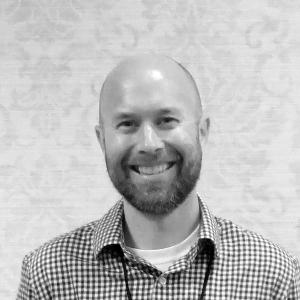Matthew Preisser

Collecting Stories at the National Working Waterfronts and Waterways Symposium 2018
Collecting Stories at the National Working Waterfronts and Waterways Symposium 2018 is a project of Maine Sea Grant, College of the Atlantic, the Island Institute, and the National Working Waterfront Network.
National Capital Contracting
Working for a non-regulatory group, the Michigan Office of the Great Lakes in Lansing, MI, Matthew Preisser does statewide and regional planning work to protect and restore the Great Lakes and the communities that depend on them. He serves in a professional capacity within the Michigan Office of the Great Lakes, where his responsibilities are centered on coastal zone management and the execution of federal programs pertinent to the region. His role is critical in fostering connections and providing support to the island communities scattered throughout the Great Lakes. These communities, which Preisser is deeply involved with, are characterized by a profound appreciation for their surrounding natural environment. The local economy of these islands is heavily dependent on tourism and the accessibility of water-based resources, which are integral to their way of life. The inhabitants of these islands typically engage in a variety of occupations, with fishing, tourism-related jobs, and seasonal employment being among the most common. Preisser's work involves close interaction with these communities, understanding their unique challenges, and assisting in the preservation of their livelihoods and natural heritage.
Scope and Content Note:
The oral history interview with Matthew Preisser provides an insightful exploration of the challenges and necessities faced by island communities in the Great Lakes region. He discusses his work to create a network of Great Lake island communities to elevate the voices of islanders. Preisser delves into the complexities of these communities, discussing the formation of a supportive network aimed at addressing their specific needs. Throughout the interview, he shares personal anecdotes that highlight the regional disparities and underscores the significance of establishing connections with the local residents. The content of the interview is rich with discussions about the islanders' deep-seated connection to their environment, their economic reliance on tourism, and the critical nature of water access for sustaining their communities. Preisser also touches upon the prevalent occupational trends within these communities, such as fishing, tourism, and seasonal work, providing a comprehensive overview of the economic fabric that supports the island residents. The interview serves as a testament to Preisser's commitment to his role in the Michigan Office of the Great Lakes and his dedication to enhancing the well-being of the Great Lakes island communities.
Please Note: The oral histories in this collection are protected by copyright and have been created for educational, research and personal use as described by the Fair Use Doctrine in the U.S. Copyright law. Please reach out Voices@noaa.gov to let us know how these interviews are being used in your research, project, exhibit, etc. The Voices staff can help provide other useful resources related to your inquiry.
The NOAA mission is to understand and predict changes in climate, weather, oceans, and coasts, to share that knowledge and information with others, and to conserve and manage coastal and marine ecosystems and resources. The Voices Oral History Archives offers public access to a wide range of accounts, including historical materials that are products of their particular times, and may contain offensive language or negative stereotypes.
Voices Oral History Archives does not verify the accuracy of materials submitted to us. The opinions expressed in the interviews are those of the interviewee only. The interviews here have been made available to the public only after the interviewer has confirmed that they have obtained consent.
